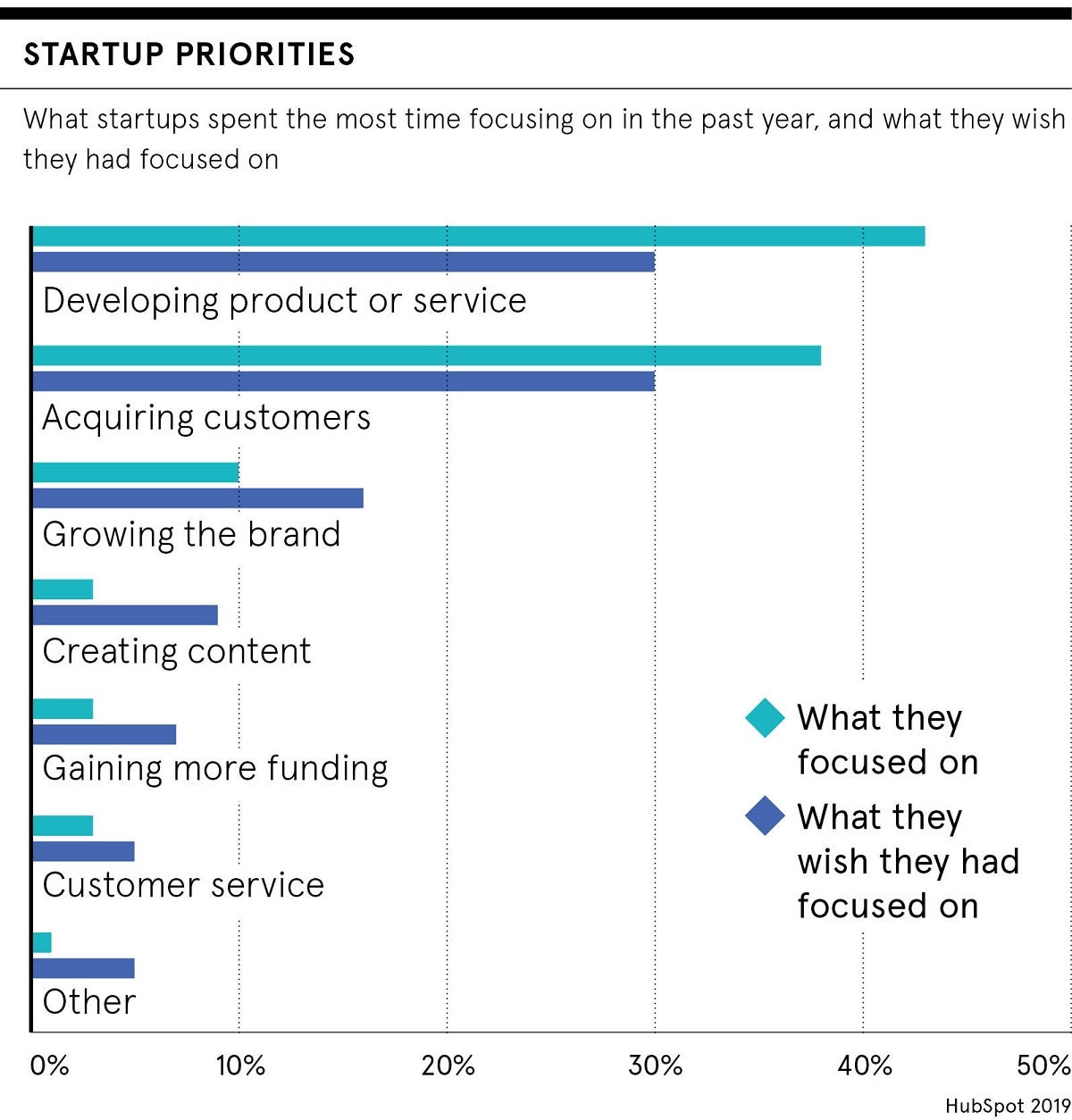Marketing for tech startups is critical to their short and long-term success, but with a mushrooming number of communications channels to choose from, it is tricky to know which ones to pick.
Poor marketing is one of the main reasons for startups failing, according to 2018 research by CB Insights, a New York-based organisation that empowers business leaders through data analysis. Predictably, a lack of market demand is top of the list (42 per cent), followed by running out of money (29 per cent), but under-par marketing figures at 14 per cent.
Matthew Stibbe, chief executive of London-based Articulate Marketing, stresses the importance of marketing for tech startups. “Companies never triumph if they don’t get the word out to potential customers,” he says. “By analogy, you can’t have a successful restaurant if you turn off the lights and lock the door.”
However, when it comes to marketing for tech startups, it is vital not to overpromise. Mr Stibbe points to the frauduent portrayal of Fyre Festival, a “luxury” event which failed to deliver and was created with the intent of promoting the company’s app for booking music talent.
In his experience, the two biggest mistakes tech startups can make are “not spending anything and assuming ‘if I build it they will come’ and thinking that a DIY approach will be enough”.
“Just because you’re a technical genius, a heroic leader or a sales guru doesn’t necessarily mean you’re also a marketing expert or that it’s a good use of your time to become one,” he says.
First step: targeting the right audience
Marta Krupinska, head of Google for Startups UK, says marketing for tech startups needn’t break the bank. “Understanding where to begin with digital marketing can be the first major hurdle for tech startups, and it’s on the founders to develop their skills and knowledge,” she says. “You don’t need to spend thousands of pounds learning the ropes, though, or refining your strategy.”
Mr Stibbe agrees. “Entrepreneurs don’t need to spend big to build effective marketing strategies,” he says. “There are circumstances where you literally can’t spend any money on marketing even if you wanted to. In these cases, the secret lies in targeting. If you can exactly define who is going to buy your product, for example using personas, you can target them more effectively.”
Just because you’re a technical genius, a heroic leader or a sales guru, it doesn’t mean you know marketing
This chimes with Emma Thwaites, founder and chief executive of Thwaites Communications, headquartered in London’s Shoreditch. “Targeted engagement with your key audiences in an online discussion can be a highly effective means of disseminating information and opening a dialogue with future potential customers,” she says, arguing that digital marketing is superior.
“Traditional marketing routes are passive, where people receive news, whereas social media is active, a space where people can react and be involved in the conversation.”
Ms Thwaites underlines the importance of firming up brand messaging and references Simon Sinek’s 2009 TED Talks presentation, Start With Why, which highlights why Apple has managed to eclipse rivals.
She insists that data-driven marketing for tech startups is best provided by external agencies, who have tips on how to present key messages. “We advise tech startups working with data to invest in creating strong visuals to illustrate business and human interest stories,” she says. “Simple but clever data visualisations show thought leadership, as well as bringing startup services to life for the media and customers.”
Free tools for marketing for tech startups
However, if tech startups have no budget for marketing, what can they do? Ms Krupinska encourages entrepreneurs to take advantage of free mobile applications, such as Google Primer. “These allow them to choose from a variety of business and digital marketing topics and receive free online lessons relevant to their companies and careers,” she says.
“Once you’re on your way, tools like Google Trends use real-time data to help marketers gauge consumer search behaviours over time based on Google Search traffic.”

Subjects including seasonality, related terms and regionality of interest can be leveraged to gain valuable information on “what, when and where business opportunities are happening, and come at zero cost”, she adds.
Other cheap, but effective, marketing ploys include rewarding early adopters and refer-a-friend schemes, says Ms Krupinska. “They incentivise your users to get value out of inviting their friends to use your service. It’s also great to make your product feel exclusive.
“What does not work, and I’ve seen it too many times, is spamming customers and abusing their trust and their data. Don’t email me 100 times to get me to buy your product. It will only make me want to buy from you less.” Tech entrepreneurs, you have been warned.
First step: targeting the right audience
Free tools for marketing for tech startups

